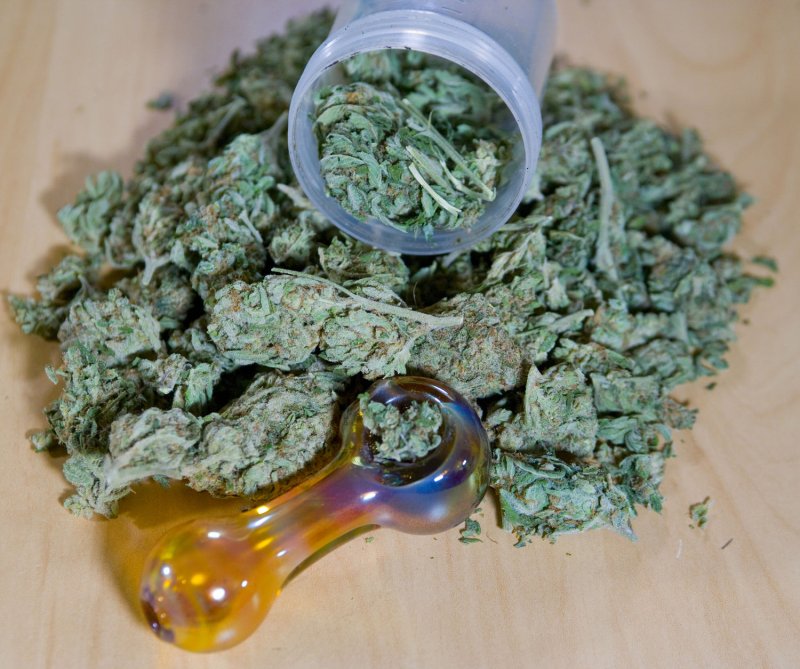A new study published in the journal Human Communication Research finds that parents should not admit past drug use if they want to foster an anti-drug attitude in their children — even if the disclosure is intended as a lesson in consequences and regret. (File/UPI /Jim Bryant) |
License Photo
Parents know that one day they will have to talk to their children about drug use. Many parents are unsure whether talking about their own drug use would help communicate an anti-drug message. Recent research, published in the journal Human Communication Research, found that children whose parents did not disclose drug use, but delivered a strong anti-drug message, were more likely to exhibit anti-drug attitudes.
Jennifer A. Kam and Ashley V. Middleton published their findings from surveys of 253 Latino and 308 European American students from the sixth through eighth grades. The students reported on the conversations that they have had with their parents about alcohol, cigarettes, and marijuana. The authors were interested in determining how certain types of messages were related to the students' substance-use perceptions and behaviors.
In past studies, teens self-reported that they would be less likely to use drugs if their parents told them about their own past drug use. In Kam and Middleton's study, however, the children who reported that their parents talked about the negative consequences of their own past substance use were actually less likely to report anti-use perceptions. This finding means that when parents share their stories of substance use, even regretfully or as a lesson, such messages may have unintended consequences for early adolescent children.
Kam and Middleton's study identifies specific messages that parents can relay to their children about alcohol, cigarettes, and marijuana to encourage anti-use perceptions and behaviors in children. Parents may talk to their kids about negative consequences, how to avoid substances and and stories about others who have gotten in trouble from using substances — just not themselves.
"Parents may want to reconsider whether they should talk to their kids about times when they used substances in the past and not volunteer such information," says Kam. "Of course, it is important to remember this study is one of the first to examine the associations between parents' references to their own past substance use and their adolescent children's subsequent perceptions and behaviors."







